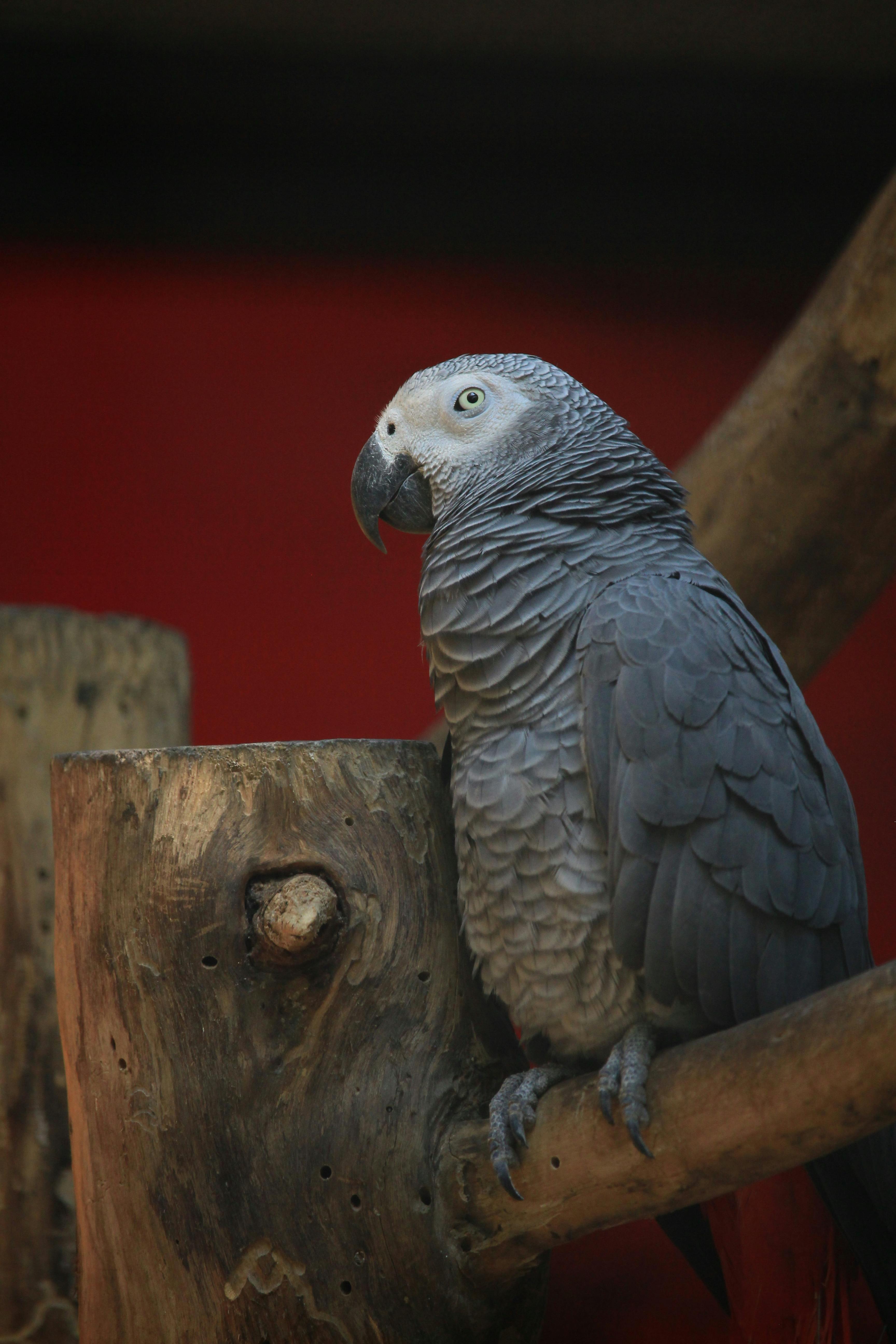
Enhancing Your Quaker Parrot Lifespan: 10 Effective Ways in 2025
The longevity and well-being of your feathered friend, the Quaker parrot, depend significantly on the care and environment you provide. Understanding the **quaker parrot lifespan** is crucial for any owner aiming to create the best possible living conditions to maximize their pet's life expectancy. In this article, we will delve into practical tips and strategies that can help you ensure a long, healthy life for your Quaker parrot.
Understanding Quaker Parrot Lifespan
Before we explore ways to enhance their longevity, it’s important to know what the **average lifespan of Quaker parrots** is. Typically, in captivity, a Quaker parrot can live between 15 to 30 years, depending on various factors like genetics, environment, and care standards. If you’re curious about how long do Quaker parrots live, you should keep in mind that those exposed to the proper diet, socialization, and habitat conditions tend to thrive longer. Understanding the factors that affect **quaker parrot life expectancy** can help you create an environment conducive to their health.
Factors Affecting Quaker Parrot Lifespan
Several factors contribute to the **lifespan of quaker parrots**. Primarily, the quality of care, nutrition, and environmental conditions play pivotal roles. For example, a balanced diet rich in vitamins, minerals, and fresh foods is crucial for their health. Insufficient nutrition can lead to health issues, prematurely shortening their lifespan. Additionally, factors such as genetics also play a significant role in determining how long your parrot will live. If you're adopting a **quaker parrot for the first time**, understanding these factors will prepare you for optimal care and provide a clearer picture of what to expect in terms of their lifespan.
Quaker Parrot Environment and Habitat
Creating a safe and enriching **habitat for quaker parrots** is vital. This includes proper cage setup, indoor or outdoor living conditions, and space to explore. An ideal environment can include toys for **quaker parrot enrichment**, as stimulation plays a key role in maintaining their mental health. Stressful environments are detrimental to Quaker parrots and can lead to shortened lifespans. Therefore, it’s important to create a calm and engaging home where they can thrive.
Essential Care Tips for Quaker Parrots
Proper **quaker parrot care** is fundamental in extending their lifespan. Regular vet check-ups and monitoring for signs of aging or illness are necessary to catch potential issues early. Vaccination and preventive care cannot be overlooked if you want your feathered friend to live a healthy life. Additionally, establishing good hygiene practices in grooming and cleaning their cage reduces the risk of diseases that can affect their health over time.
Nutrition Impact on Quaker Parrot Lifespan
The impact of diet on **quaker parrot lifespan** cannot be underestimated. A nutritious, varied diet, including pellets, fresh fruits, and vegetables, is necessary for your parrot's well-being. Avoiding seeds as a primary food source is recommended, as they can lead to obesity and health complications. Instead, focus on understanding the specific **dietary needs by age for quaker parrots**, as young birds and aging parrots have different nutritional requirements to maintain their health. For instance, ensuring that older parrots get enough calcium can prevent bone issues later in life.
Exercise and Mental Stimulation for Quaker Parrots
Just like other pets, exercise plays a crucial role in the longevity of a **quaker parrot**. Regular flying time outside the cage promotes physical health and reduces obesity risks. Creating opportunities for play and providing **mental stimulation for quaker parrots** helps to keep your bird engaged and prevented from becoming bored. Interactive toys and training sessions can also stimulate their minds, associated with greater overall health and happiness.
Socialization and Emotional Health
Quaker parrots are inherently social creatures; thus, providing social interaction is vital to their emotional well-being. **Socialization is important for quaker parrots**, ensuring they don't develop behavioral problems due to isolation. Engage regularly with your Quaker parrot, whether through talking, training, or play. Having another bird or animal can also be beneficial for companionship; however, introducing new pets should be down thoughtfully as stress can affect their well-being. Recognizing their mental health needs can significantly enhance **quaker parrot longevity**.
Signs of Aging in Quaker Parrots
As your Quaker parrot ages, certain signs may indicate their changing needs. Becoming aware of the **signs of aging in quaker parrots**, including changes in behavior, appetite, and mobility, will allow you to adapt care accordingly. Older parrots may require less demanding toys or diets that cater to diminishing energy levels. Adjusting your approach as they enter different **quaker parrot age stages** can prevent unnecessary stress and ensure their happiness.
Aging Quaker Parrots Care
Caring for **aging quaker parrots** requires heightened awareness of their health and care needs. Regular veterinary visits, a modified diet, and easier access to their environment can significantly improve their quality of life. Consider integrating supplements that boost **quaker parrot health**, helping to mitigate age-related health issues. Enticing them with their favorite foods or creating new routines can also keep their spirits high.
Key Takeaways
- Understand the factors influencing **quaker parrot lifespan** for optimal care.
- Create an engaging habitat filled with stimulation and proper exercise opportunities.
- Focus on a nutritious diet tailored to your parrot’s age and health status.
- Prioritize socialization and emotional well-being to enhance overall health.
- Monitor signs of aging and adapt care practices as necessary.
FAQ
1. What is the average lifespan of a Quaker parrot in captivity?
The **lifespan of a quaker parrot in captivity** is typically around 15-30 years, depending on various factors such as diet, care, and living environment. Proper attention to health and well-being can help you maximize their longevity.
2. How does diet impact **quaker parrot health**?
A nutritious diet directly affects parrot health, impacting their lifespan. Offering a balanced mix of pellets, fruits, and vegetables supports their organ function and energy levels, reducing the risk of obesity and associated health problems.
3. What are the common health issues affecting Quaker parrots?
Common health problems in Quaker parrots include obesity, feather plucking, and respiratory issues due to poor environmental conditions. Regular check-ups with an avian veterinarian are essential to catch these issues early.
4. How important are vet check-ups for quaker parrot longevity?
**Vet check-ups for quaker parrots** are crucial for maintaining health and addressing any emerging issues. Regular visits help ensure they receive vaccinations and preventive treatments, significantly enhancing their lifespan and quality of life.
5. How can I improve the habitat for my Quaker parrot?
Improving your Quaker parrot's habitat involves offering various toys for stimulation, ensuring proper cage size, and maintaining a clean environment. A safe and enriched habitat enhances both mental and physical well-being.
6. What role does social interaction play in a Quaker parrot's life?
**Social interaction for quaker parrots** is essential for their emotional health. These parrots thrive on companionship, which helps prevent behavioral problems and encourages positive mental states.
For further information on Quaker care, visit this link for more tips!
Check out more on optimal conditions in this article.

